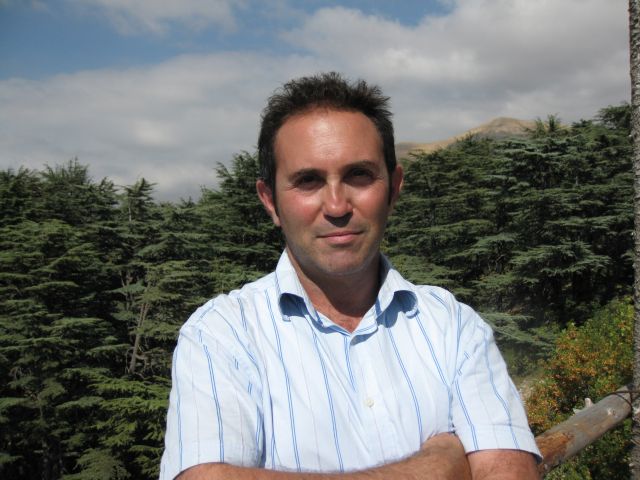
US-Palestinian professor Saree Makdisi and Canadian-Palestinian lawyer Diana Buttu spoke on June 30 as part of a national tour to promote the international campaign for boycott, divestment and sanctions against Israel.
At the public meeting, Makdisi compared laws in apartheid South Africa with those in Israel and said “There are exact equivalent laws in Israel of all the African apartheid laws.”
He said the discrimination “begins with kids entering day care and continues for the rest of their lives”.
He added that there were 1600 day-care centres in Israel but only 25 of them are in Palestinian towns. Of the 80,000 kids in day care, only 4200 are Palestinian. By proportion of population, it should be 20,000.
Israel spends four times as much on education for a Jewish person than it does on a Palestinian person.
Makdisi said Israel’s apartheid was not as obvious as that of South Africa. In South Africa, there were signs outside every building showing which door was for blacks and which door was for whites.
“In Israel, it isn’t so visual”, Makdisi said.
“There are no signs saying Jew or non-Jew. That means an Israeli Jew is not always aware of the racist apartheid nature of the system. It allows Israel to claim no racism.
“South African apartheid was about exploiting black labour whereas Israeli apartheid is about the annihilation of Palestinians.”
Buttu said Israel has always been concerned about solving the “demographic threat” of the Palestinians. “In 1948, Israel solved the demographic threat with expulsion but that wasn’t acceptable by 1967, so [Israel has since] used the tactic of controlling and confining.”
Israelis get lower taxes, better roads and hospitals if they move from Israel proper to the occupied territories.
“First comes the Jewish settlement, then the military base to defend the settlement”, she said. “Then [came] nature reserves, then came the wall and the Israeli-only roads. There are checkpoints, roadblocks and barriers throughout the West Bank.
“The process of separation started in 1967 but the closures began in the 1990s. You need Israeli permits to travel between places in the West Bank, even for short distances.”
Buttu was part of the litigation team that gave evidence to the International Court of Justice in The Hague when it ruled in 2004 that Israel’s separation wall was illegal.
Israel began construction on the separation wall in 1994. It cuts through Palestinian territory in the West Bank, dividing people from their families, schools, hospitals and places of employment.
Buttu explained that there are gates in the wall but they might be open only three times a day for an hour each time.
“You need Israeli permits to go through the gates in the wall”, she said.
“Very few Palestinians can get permits. You have to be a landowner, not a worker on the land.”
Buttu said that Israeli authorities are trying to limit Palestinians to only 30% of the population through planning and residency laws. Palestinian residents of East Jerusalem are Israeli residents but not Israeli citizens.
“If you can’t prove that Israel is the centre of your life, you’re residency can be revoked”, she said. “This doesn’t apply to Jewish residents.”
Buttu said “60,000 Palestinian homes are now vulnerable to demolition” in East Jerusalem, and that the peace process has covered up Israel taking more and more land in the West Bank.
“Our problem in Palestine is we used to be focused on governments and leaders and diplomatic work instead of the grassroots,” she said.
“Now through the boycott, divestment and sanctions campaign we are becoming focused on the grassroots instead of diplomacy.”